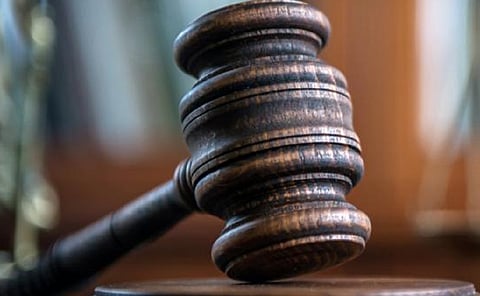

The intention behind serving food to street dogs is commendable, but it should not cause convenience for people, the Karnataka High Court said on October 5, 2023.
The High Court noted that there have been no reported cases in which individuals who feed street dogs have also participated in the sterilisation and vaccination initiatives carried out by municipal corporations or public bodies.
The court mentioned a guideline from the Animal Welfare Board of India, issued on March 3, 2021. This guideline involves Resident Welfare Associations (RWA) and feeders working with representatives from the Animal Welfare Board of India to identify suitable spots for feeding stray dogs within colonies. These activities should not hinder other activities at these spots.
The High Court emphasised that while citizens have a genuine desire to feed street dogs, they also have a duty to ensure their actions do not disrupt, hinder, or pose health hazards to fellow citizens.
The division bench of Chief Justice Prasanna B Varale and Justice Krishna S Dixit noted that some critical areas were being used for feeding street dogs. For example, an open area near the Karnataka Vidhana Soudha entrance in Bengaluru saw citizens bringing food for street dogs and birds in their vehicles. There were also instances of feeding street dogs in areas frequented by walkers in Cubbon Park.
The High Court directed the Karnataka government to provide a comprehensive response and list appropriate remedial measures to address the matter.
On October 4, the National Green Tribunal (NGT) issued a directive to establish a committee tasked with investigating the allegations of pollution within the Kotwan Industrial area of Kosi Kalan, Mathura district of Uttar Pradesh.
This committee’s primary responsibilities include the collection of water samples from the discharge emanating from the factories in the concerned area and subsequently presenting a detailed report to the tribunal.
Furthermore, the committee is mandated to verify the accuracy of the incident reported in the newspaper, which pertains to the alleged release of untreated chemicals from these factories. If violations of environmental laws are identified, the committee is also entrusted with implementing appropriate preventive or remedial measures as deemed necessary.
The tribunal took suo motu cognisance to an article published on June 4, 2022, in Amar Ujala daily, which said 12 buffaloes had perished after consuming contaminated water discharged from the factories in the Kotwan Navipur Industrial Area.
The report additionally mentioned that authorities had collected water samples for testing purposes. The core allegation revolves around the units’ release of untreated toxic chemicals into the Kosi drain, from which the buffaloes had consumed the water.
A Uttar Pradesh government circular (issued in 2020) granting exemptions to brick kilns and activities related to handmade earthen pots from Environmental Clearance was brought before the NGT on October 4, 2023.
The tribunal acknowledged petitioner’s concerns regarding the matter and directed the state government to submit a response before the next hearing, scheduled for December 11, 2023.
The petitioner referenced a Supreme Court judgment, which had directed all states and Union Territories to require Environment Impact Assessment from the Union environment ministry for the grant and renewal of leases for minor minerals in areas of less than five hectares.
The NGT mandated forming a joint committee to investigate allegations of environmental violations during the construction of the Bundelkhand Expressway Project.
This committee will consist of the member secretary of the Uttar Pradesh Pollution Control Board, a representative from the Union Ministry of Road Transport and Highways, the relevant executive engineer from the Public Works Department and the district magistrate of Jalaun.
The joint committee’s primary objectives are to assess instances of illegal mining by the project proponent and the resultant environmental damage. It is also tasked with proposing preventative and remedial measures.
The committee must present its findings in a report by the upcoming hearing date, December 15, 2023. The hearing was initiated based on a petition dated June 12, 2023, sent by a resident of Narcha village, Jalaun, Uttar Pradesh.
The complaint alleged that during the construction of the Bundelkhand Expressway Project, the project proponent excavated soil up to 10-15 metress deep from farmers’ lands.
The applicant further claimed that this illicit activity damaged the road at multiple locations. Additionally, it alleged that despite the application for mining permission being made in 2021, mining had been ongoing since February 2020.
This unauthorised deep mining allegedly led to the deaths of hundreds of cattle and environmental harm. Contrary to the approved permission for mining up to 2 metress, the project proponent purportedly conducted mining from 20-55 feet deep in agricultural fields without seeking proper authorisation.